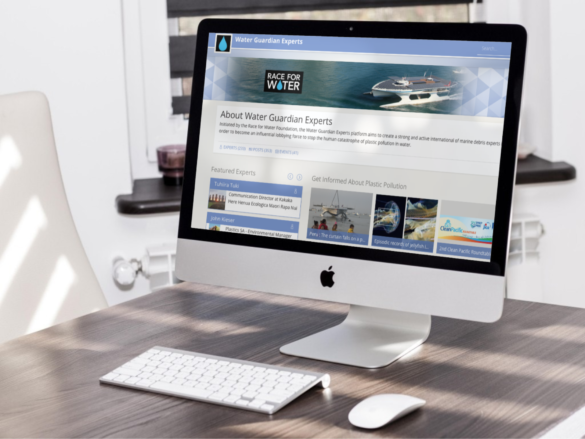Through the LEARN program, we are helping to broaden the scientific understanding of the crises the Ocean is facing.
Our scientific missions are the heart of our commitment to the oceans and are deployed through maritime expeditions. These missions aim to explore the environmental challenges our oceans are facing, focusing on the impacts of plastic pollution, ocean warming, acidification, and loss of marine biodiversity.
The scientific advances resulting from these missions inform conservation policies and guide to take concrete actions to preserve marine ecosystems.
Protecting our oceans is of universal importance, transcending national boundaries, and individual interests. It’s a shared responsibility, and our scientific missions bring together researchers, activists, governments, and citizens from around the world to preserve our shared ocean heritage.
Onboard scientific missions
Innovative scientific partnership : Collaborate with the Race for Water Foundation
Contact us
"Meet the experts"
Our goal with these webinars is to continue to build bridges between scientists, opinion leaders, policymakers and citizens to accelerate some of the urgent changes our society needs to make to preserve the Ocean and ensure a healthy environment for all of us.
A platform for exchange : "Water Guardian Experts"
After its first Odyssey, the foundation launched an international communication platform to enable exchanges and share its expertise in the fight against plastic pollution in the oceans.
Today, this platform gathers a whole community of experts, the majority of whom have been encountered during the two Odyssey’s stopovers: researchers, organisations, associations, institutions, governments, entrepreneurs and manufacturers. It is now open to the public.
